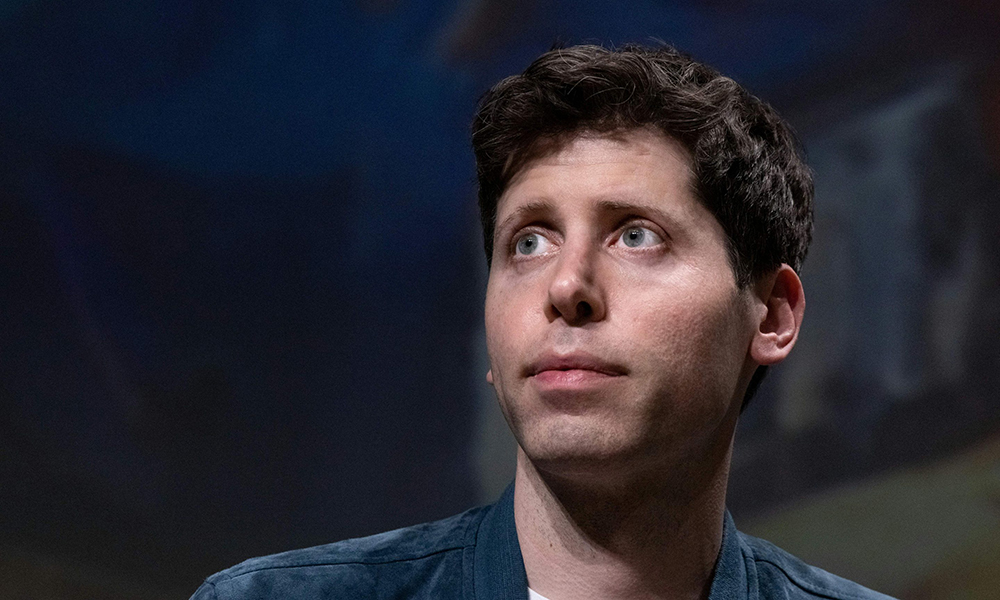
OpenAI上周四发布的人工智能搜索引擎,是其挑战谷歌(Google)主导地位、与Perplexity等人工智能搜索后起之秀竞争的一大警告。
OpenAI称,其搜索引擎SearchGPT的目标是“快速及时地提供来源清晰、相关的答案”,其特征是提供实时、最新的回复。虽然目前原型仅向10,000名用户开放,但人工智能搜索之战显然已经打响。
至少迄今为止,争夺人工智能搜索主导地位进入了阵地战,进展缓慢且困难重重。以微软(Microsoft)为例:2023年2月7日,微软首席执行官萨蒂亚·纳德拉宣布,推出经过重新设计的必应(Bing)搜索引擎,搭载OpenAI的聊天机器人ChatGPT,搜索领域的“竞赛从今天开始“。
作为回应,谷歌迅速推出了名为Bard的竞争对手,后来更名为 Gemini,并使用Gemini的答案作为传统搜索链接的补充。但这些所谓的人工智能概述因其“幻觉”或错误离奇的答案(包括建议“在披萨上涂胶水”)而广受诟病,以至于谷歌降低了它们的出现频率,从最高占查询次数的84%降至6月份的不足15%。包括Mozilla人工智能责任高级顾问亚贝巴·博哈尼在内的专家已经明确表示,可能没有可靠的方法可以完全消除人工智能的“幻觉”。
参与人工智能搜索市场份额争夺战的,还有Perplexity等初创公司。该公司于2022年首次亮相,其目标是通过声称高度准确的搜索结果来取代谷歌。该公司获得1.65亿美元融资,估值超过10亿美元,但它却遭遇了严重的动荡。上个月,《福布斯》指控Perplexity侵犯版权,因为该公司未经许可擅自使用其在线文章为人工智能提供素材;而就在几天前,杂志出版商康泰纳仕(Conde Nast)也向Perplexity发出了责令终止侵权警告函。Perplexity的首席执行官阿尔文德·斯里尼瓦斯在回应《福布斯》的指控时表示,新产品功能“还不完善,我们正在根据更多的反馈意见进行改进”。
但是,正如广泛报道的那样,几个月来,OpenAI一直在尝试与某些媒体公司友好合作,为搜索结果寻求这些公司的内容授权,并将它们的内容输入ChatGPT,而不是未经许可就抓取内容。其合作伙伴包括《大西洋月刊》(The Atlantic)、沃克斯传媒(Vox Media)和新闻集团(News Corp.)。
OpenAI在上周四关于SearchGPT首发的博文中引用了《大西洋月刊》首席执行官尼古拉斯·汤普森的话,对这一安排大加赞赏。他表示:“人工智能搜索将成为人们浏览互联网的主要方式之一,在早期阶段,这项技术的开发方式必须重视、尊重并保护新闻业和出版商,这一点至关重要。“
上周四下午,OpenAI在备受期待中进军搜索领域的消息一出,谷歌股价在几分钟内暴跌,这也表明了搜索大战的激烈程度。谷歌股价当天下跌3%,收于169.16美元。
但是,谷歌股价的些许波动,是否意味着人工智能搜索大战胜负已分?完全不是。
截至今年6月,在其核心搜索业务遭受一年半的攻击后,谷歌仍占有超过90%的全球市场份额,仿佛这场战争并不存在。与此同时,微软必应的市场份额只有可怜的3.7%,而Perplexity的市场份额则可以忽略不计。
如果OpenAI想要站稳脚跟,就需要在战壕里慢慢摸索。至于其热门的ChatGPT助手,据媒体报道,其流量已从2024年4月的峰值18亿次访问量有所下滑。
因此,OpenAI专注于出版商合作,为其搜索提供更友好、更实时的信息来源,可能会为其新的搜索方法加分。但人工智能搜索大战才刚刚开始升温,可能会持续数年,OpenAI能否在人工智能搜索大战中获胜,还有待观察。(财富中文网)
译者:刘进龙
审校:汪皓
OpenAI上周四发布的人工智能搜索引擎,是其挑战谷歌(Google)主导地位、与Perplexity等人工智能搜索后起之秀竞争的一大警告。
OpenAI称,其搜索引擎SearchGPT的目标是“快速及时地提供来源清晰、相关的答案”,其特征是提供实时、最新的回复。虽然目前原型仅向10,000名用户开放,但人工智能搜索之战显然已经打响。
至少迄今为止,争夺人工智能搜索主导地位进入了阵地战,进展缓慢且困难重重。以微软(Microsoft)为例:2023年2月7日,微软首席执行官萨蒂亚·纳德拉宣布,推出经过重新设计的必应(Bing)搜索引擎,搭载OpenAI的聊天机器人ChatGPT,搜索领域的“竞赛从今天开始“。
作为回应,谷歌迅速推出了名为Bard的竞争对手,后来更名为 Gemini,并使用Gemini的答案作为传统搜索链接的补充。但这些所谓的人工智能概述因其“幻觉”或错误离奇的答案(包括建议“在披萨上涂胶水”)而广受诟病,以至于谷歌降低了它们的出现频率,从最高占查询次数的84%降至6月份的不足15%。包括Mozilla人工智能责任高级顾问亚贝巴·博哈尼在内的专家已经明确表示,可能没有可靠的方法可以完全消除人工智能的“幻觉”。
参与人工智能搜索市场份额争夺战的,还有Perplexity等初创公司。该公司于2022年首次亮相,其目标是通过声称高度准确的搜索结果来取代谷歌。该公司获得1.65亿美元融资,估值超过10亿美元,但它却遭遇了严重的动荡。上个月,《福布斯》指控Perplexity侵犯版权,因为该公司未经许可擅自使用其在线文章为人工智能提供素材;而就在几天前,杂志出版商康泰纳仕(Conde Nast)也向Perplexity发出了责令终止侵权警告函。Perplexity的首席执行官阿尔文德·斯里尼瓦斯在回应《福布斯》的指控时表示,新产品功能“还不完善,我们正在根据更多的反馈意见进行改进”。
但是,正如广泛报道的那样,几个月来,OpenAI一直在尝试与某些媒体公司友好合作,为搜索结果寻求这些公司的内容授权,并将它们的内容输入ChatGPT,而不是未经许可就抓取内容。其合作伙伴包括《大西洋月刊》(The Atlantic)、沃克斯传媒(Vox Media)和新闻集团(News Corp.)。
OpenAI在上周四关于SearchGPT首发的博文中引用了《大西洋月刊》首席执行官尼古拉斯·汤普森的话,对这一安排大加赞赏。他表示:“人工智能搜索将成为人们浏览互联网的主要方式之一,在早期阶段,这项技术的开发方式必须重视、尊重并保护新闻业和出版商,这一点至关重要。“
上周四下午,OpenAI在备受期待中进军搜索领域的消息一出,谷歌股价在几分钟内暴跌,这也表明了搜索大战的激烈程度。谷歌股价当天下跌3%,收于169.16美元。
但是,谷歌股价的些许波动,是否意味着人工智能搜索大战胜负已分?完全不是。
截至今年6月,在其核心搜索业务遭受一年半的攻击后,谷歌仍占有超过90%的全球市场份额,仿佛这场战争并不存在。与此同时,微软必应的市场份额只有可怜的3.7%,而Perplexity的市场份额则可以忽略不计。
如果OpenAI想要站稳脚跟,就需要在战壕里慢慢摸索。至于其热门的ChatGPT助手,据媒体报道,其流量已从2024年4月的峰值18亿次访问量有所下滑。
因此,OpenAI专注于出版商合作,为其搜索提供更友好、更实时的信息来源,可能会为其新的搜索方法加分。但人工智能搜索大战才刚刚开始升温,可能会持续数年,OpenAI能否在人工智能搜索大战中获胜,还有待观察。(财富中文网)
译者:刘进龙
审校:汪皓
OpenAI’s launch of an AI search engine on Thursday was a big warning shot in its war to challenge Google’s dominance and drive out AI search upstarts like Perplexity.
SearchGPT, as OpenAI’s search engine is called, aims to provide “fast and timely answers with clear and relevant sources,” featuring real-time, up-to-date responses, OpenAI said. While currently just a prototype that’s available to 10,000 users, it’s clear the battle over AI search is on.
So far, at least, the quest for AI search dominance has been like trench warfare—slow and difficult to advance. Take Microsoft, for example: On February 7, 2023, Microsoft CEO Satya Nadella announced that the “race starts today” in search, with a reimagined Bing search engine powered OpenAI’s chatbot, ChatGPT.
Google, in response, quickly rolled out a competitor called Bard, later renamed Gemini, and then used Gemini’s answers to supplement its traditional search links. But those so-called AI overviews ended up being so widely criticized for their “hallucinations,” or incorrect or bizarre answers, (including suggesting “putting glue on pizza”) that Google has reduced the frequency that they appear, from a high of 84% of queries down to less than 15% in June. And experts, including Abeba Birhane, senior advisor, AI accountability at Mozilla, have made clear that there may be no reliable way to get rid of AI “hallucinations” altogether.
Also scrambling for AI search market share are startups like Perplexity, which debuted in 2022 with a goal to unseat Google with what it claimed were highly-accurate results. But the company, which has raised $165 million in funding at an over $1 billion valuation, has hit serious turbulence. Last month, Forbes accused Perplexity of copyright infringement for scraping its online articles without permission to feed its AI, while magazine publisher Conde Nast followed with a cease and desist letter against Perplexity just a couple of days ago. Perplexity’s CEO Arvind Srinivas responded to the Forbes accusation by saying the new product feature had “rough edges, and we are improving it with more feedback.”
But, as has been widely reported, for months OpenAI has been trying to play nice with certain media companies by licensing their content for search results and to feed their content into ChatGPT, instead of scraping it without permission. The partners include The Atlantic, Vox Media and News Corp.
Nicholas Thompson, CEO of The Atlantic, is quoted in OpenAI’s blog post about SearchGPT’s premiere on Thursday as praising the arrangement. “AI search is going to become one of the key ways that people navigate the internet, and it’s crucial, in these early days, that the technology is built in a way that values, respects, and protects journalism and publishers,” he said.
In a sign of the high stakes in the search wars, Google’s stock tumbled Thursday afternoon within minutes of OpenAI making its much-expected foray into search. Google’s shares ended the day down 3% at $169.16.
But does Google’s blip mean the AI search wars are already won—or lost, depending on the perspective? Not at all.
As of June, after more than a year and a half of assaults on its core search business, Google still enjoyed a global market share of over 90%, as if there is no war. Meanwhile, Microsoft’s Bing has a woeful 3.7% and Perplexity’s is too low to be measured.
If OpenAI wants to gain ground, it will need to slowly claw its way through the trenches. And as for its buzzy ChatGPT assistant—its traffic is reportedly down from its April 2024 peak of 1.8 billion visits.
So OpenAI may score points for its new approach to search, focusing on publisher partnerships that offer more friendly and real-time sourcing of information for its search. But it remains to be seen whether it will win the AI search war, which is just starting to ramp up and will likely rage for years.






